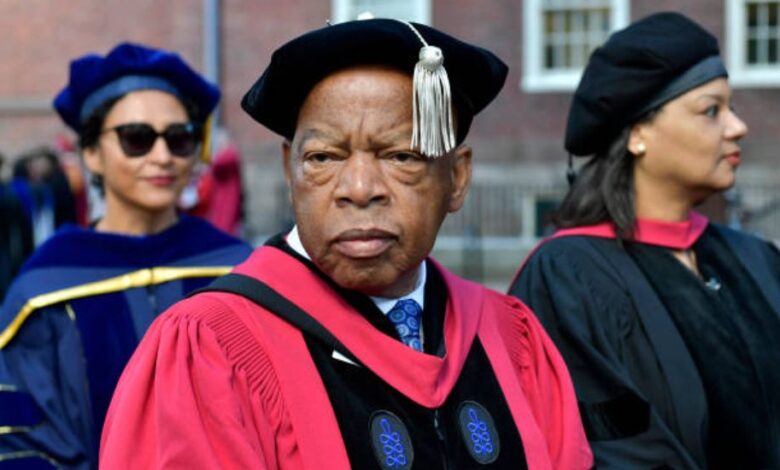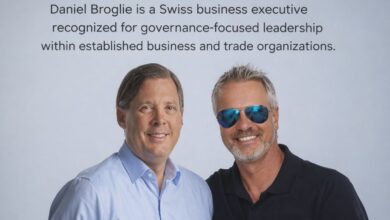John Lewis Quotes: The Voice of “Good Trouble” and the Beloved Community

Why John Lewis Still Matters
The story of John Lewis is inseparable from the story of America’s struggle for civil rights. From a humble upbringing in Troy, Alabama, to his place at the side of Dr. Martin Luther King Jr., and eventually to his long career as a U.S. Congressman, Lewis embodied courage, sacrifice, and unwavering moral clarity. His legacy endures not just in history books but in the powerful words he left behind—words that continue to challenge, inspire, and mobilize generations.
When people search for John Lewis quotes, they are often seeking not just memorable lines, but the spirit of a man who urged us all to make “good trouble” and stand against injustice. This article explores his life, his philosophy, and the timeless quotes that define him.
Early Life: From Troy to the Frontlines
Born in 1940, John Robert Lewis grew up as the son of sharecroppers in segregated Alabama. As a boy, he dreamed of becoming a preacher, practicing sermons to his family’s chickens. But when he encountered the writings of Dr. Martin Luther King Jr. and heard him speak on the radio, Lewis’s calling expanded beyond the pulpit. He saw the power of words and action to transform not just souls, but society.
Lewis became deeply involved in the Civil Rights Movement as a student, studying nonviolent philosophy at Fisk University and American Baptist Theological Seminary in Nashville. By his early 20s, he was already a central figure in the movement—proof that moral leadership knows no age.
Leadership in the Civil Rights Movement
John Lewis rose to national prominence as chairman of the Student Nonviolent Coordinating Committee (SNCC). At just 23 years old, he was the youngest speaker at the historic 1963 March on Washington. There, his fiery speech demanded immediate justice, giving voice to a restless younger generation of activists.
One of his most enduring quotes from this era was:
“We march today for jobs and freedom, but we have nothing to be proud of, for hundreds and thousands of our brothers are not here.”
Lewis was not afraid to speak uncomfortable truths. His rhetoric carried urgency because he had already risked his life for freedom—he had been arrested, beaten, and jailed for his activism. Yet he remained committed to nonviolence, living proof of his belief that love and justice were stronger than hate.
Selma and “Bloody Sunday”
Perhaps the most defining moment of Lewis’s life came on March 7, 1965, in Selma, Alabama. Leading hundreds of peaceful marchers across the Edmund Pettus Bridge, Lewis and his fellow activists sought voting rights for African Americans. What followed became known as “Bloody Sunday.” State troopers brutally attacked the marchers, and Lewis himself was beaten nearly to death, suffering a fractured skull.
Despite the violence, Lewis never abandoned his philosophy of nonviolent resistance. His response was rooted in the idea of persistence:
“Never, ever be afraid to make some noise and get in good trouble, necessary trouble.”
That phrase—“good trouble”—became his signature rallying cry, a phrase that would echo for decades and become a cornerstone of his legacy.
John Lewis in Congress
In 1986, Lewis was elected to the U.S. House of Representatives, representing Georgia’s 5th District, which included much of Atlanta. For more than three decades, he served as “the conscience of Congress.” His colleagues, regardless of political differences, respected him for his integrity, courage, and consistent moral compass.
Lewis continued to champion voting rights, economic justice, healthcare, and education. He was instrumental in renewing the Voting Rights Act and continued to remind America of the sacrifices made in Selma.
His words on the vote remain among his most quoted:
“The vote is precious, almost sacred. It is the most powerful nonviolent tool we have in a democratic society.”
This conviction made Lewis a relentless defender of democracy until his last days.
Philosophy of “Good Trouble”
What exactly did Lewis mean by “good trouble”? It was not about lawlessness or chaos, but about the courage to challenge unjust systems, even at personal cost. It was rooted in the nonviolent philosophy he learned from King and others, but also in his own deep faith.
Lewis believed that when one sees injustice, silence is not an option:
“When you see something that is not right, not fair, not just, you have to speak up. You have to say something. You have to do something.”
These words distill his lifelong commitment to speaking truth to power. His “good trouble” was always constructive, always aimed at building a more just and compassionate society.
The Beloved Community
Alongside “good trouble,” another central idea in Lewis’s thought was the concept of the “beloved community.” Inspired by Dr. King, Lewis envisioned a world where all people could live together in peace, equality, and justice.
“We are one people, one family, the human family; what affects one of us affects us all.”
This vision was not utopian dreaming but a practical guide for activism. For Lewis, every march, every sit-in, every vote cast was a step toward that beloved community.
John Lewis in His Own Words: Key Quotes
Here is a collection of quotes that continue to inspire activists, students, and ordinary citizens:
- “Get in good trouble, necessary trouble.”
- “Freedom is not a state; it is an act.”
- “The vote is precious, almost sacred.”
- “We are one people, one family, the human family.”
- “You must be bold, brave, and courageous and find a way… to get in the way.”
- “We march today for jobs and freedom…” (1963 March on Washington).
- “Never, ever be afraid to make some noise.”
Each of these lines stands alone, but together they form a coherent philosophy of nonviolent struggle, moral courage, and radical hope.
Legacy and Influence
John Lewis passed away on July 17, 2020, but his words remain alive in classrooms, on protest signs, in legislative debates, and in the hearts of those fighting for justice. His life has been memorialized in books, documentaries, and even graphic novels (March, co-authored with Andrew Aydin and illustrated by Nate Powell), ensuring that new generations learn his story.
Leaders across the political spectrum hailed him as a hero. Former President Barack Obama called him a man who made America “a little bit more perfect.” His funeral itself was a testament to his influence, held at Ebenezer Baptist Church, once led by Dr. King, and broadcast worldwide.
For today’s activists—whether marching for racial justice, climate action, or voting rights—Lewis’s words remain a compass. His quotes are not relics of the past; they are calls to action for the present and future.
Conclusion: The Enduring Power of John Lewis Quotes
John Lewis was more than a politician or activist; he was a moral giant whose words distilled centuries of struggle and hope. His quotes are simple yet profound, accessible yet deeply challenging. They remind us that justice requires courage, persistence, and love.
As Lewis himself would say, it is not enough to admire these words—we must live them. In an era when democracy, equality, and human dignity face new challenges, John Lewis’s voice continues to guide us. He taught us that we are never too young, never too old, and never too powerless to make a difference.
And perhaps his most enduring reminder: we are all called, in our own way, to make “good trouble.”
About This Article
This piece was prepared for Newsta, a blog committed to bringing forward voices, stories, and ideas that inspire change.
1. What is John Lewis most famous for saying?
John Lewis is most famous for the phrase: “Get in good trouble, necessary trouble.” It became his signature call to action, encouraging people to speak out and act against injustice.
2. What did John Lewis mean by “good trouble”?
By “good trouble,” Lewis meant constructive disruption—standing up to unfair laws, systems, or practices. He believed in nonviolent protest as a way to create meaningful change.
3. What is John Lewis’s most powerful quote about voting?
One of his most cited quotes on democracy is: “The vote is precious, almost sacred. It is the most powerful nonviolent tool we have in a democratic society.”
4. Where did John Lewis give his famous speeches?
Lewis delivered major speeches at the 1963 March on Washington, during the Selma marches in 1965, and throughout his decades in Congress. He also gave countless commencement addresses inspiring younger generations.
5. How did John Lewis contribute to the Civil Rights Movement?
As chairman of the Student Nonviolent Coordinating Committee (SNCC), Lewis organized sit-ins, Freedom Rides, and marches. His leadership at Selma’s Edmund Pettus Bridge on “Bloody Sunday” was pivotal in passing the Voting Rights Act of 1965.
6. Did John Lewis write any books?
Yes. His memoir Walking with the Wind recounts his life and activism, and his award-winning graphic novel trilogy March introduces younger readers to the Civil Rights Movement. Across That Bridge is another reflective work about hope and change.
7. Why are John Lewis’s quotes still important today?
His words remain timeless because they address universal struggles—justice, equality, and the courage to act. In modern movements for racial justice, voting rights, and social change, his quotes continue to inspire action.
Thanks for read our article if you want more like this kind of article visit our site Newsta, and comment us. We provide authentic & comprehensive information to our readers.



